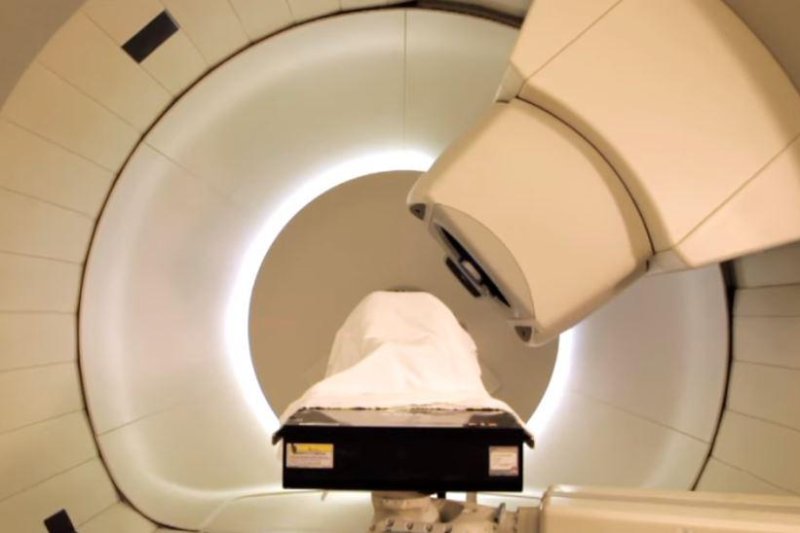A study found children with brain tumors had better neurocognitive outcomes with proton therapy treatment compared with X-ray radiation therapy. Photo courtesy of Northwestern Medical Proton Center
Nov. 6 (UPI) -- Children with brain tumors had better neurocognitive outcomes with proton therapy treatment compared with X-ray radiation therapy, according to a study.
Northwestern Medicine researchers found the treatment was effective in pediatric cases and appears to protect some brain development better than standard treatment.
The findings were presented recently at the American Society for Radiation Oncology Annual Meeting and the International Society of Pediatric Neuro-Oncology Annual Meeting, in addition to being published last week in the journal Radiation Oncology.
"Childhood is a critical time for brain growth and development," Dr. Jeffrey Paul Gross, an oncology resident at Northwestern University, told UPI. "Up until adolescence and early adulthood, the brain continues to form key connections that are essential for attention, processing speed, visual-spatial integration and non-verbal reasoning, and therefore is more sensitive to even low doses of radiation at a younger age."
Proton therapy uses protons, which are heavy and positively charged atomic particles, instead of the standard X-rays. Protons deposit most energy directly in the tumor and then stop, while conventional radiation continues to deposit the dose beyond the tumor.
Although a comparison in adults with brain tumors remains under investigation, researchers say there are important benefits for children because if healthy parts of the brain can be spared from radiation, the potential rises for better long-term cognitive outcomes.
"Because childhood is such a critical time for brain growth and development, the consequences of radiation-induced impairment can be compounded and worsen with time," Gross said. "Hence, the potential impact of sparing sensitive and developing brain structures in children may be much greater than in adults whose brains are more fully developed."
The new study is the first time the benefit in long-term cognitive outcomes with proton therapy for children with brain tumors was compared with other treatments.
Researchers analyzed the outcomes of 125 pediatric patients who received treatment for brain tumors. Their median age at diagnosis was seven years old, and the median time from treatment to last assessment was four years.
After accounting for other factors, proton therapy was associated with higher performance in terms of full-scale IQ at 10.6 points higher, processing speed at 12.6 points higher and parent-reported practical function at 13.8 points higher than x-ray radiation.
The researchers report that patient age, receipt of craniospinal irradiation and the presence of hydrocephalus all had an impact on the efficacy of the treatment. Survival rates, however, were not reviewed as part of the study.
In 2005, roughly 1 in 670 adults aged 20-39 years were survivors of pediatric brain tumors.
"Since it is known that adult survivors of childhood brain tumors are less likely to complete higher education, hold competitive jobs, marry or even live independently, minimizing long-term effects of radiotherapy using proton therapy is an important factor in these children's long-term survivorship," Gross said.
Because children have a longer lifespan, the researchers believe proton therapy is practical, though they note the availability of it is relatively limited at this point. The Northwestern center, located in suburban Chicago, is one of 28 proton centers in the United States.
"The benefits of neuropsychological preservation may often only be realized years after treatment," Dr. Vinai Gondi, director of research and education at the Northwestern Medicine Chicago Proton Center, told UPI, "therefore patients who will have long-term survival stand to benefit the most, and when feasible for patients and their families, we feel strongly that proton therapy should be considered in these cases,"















